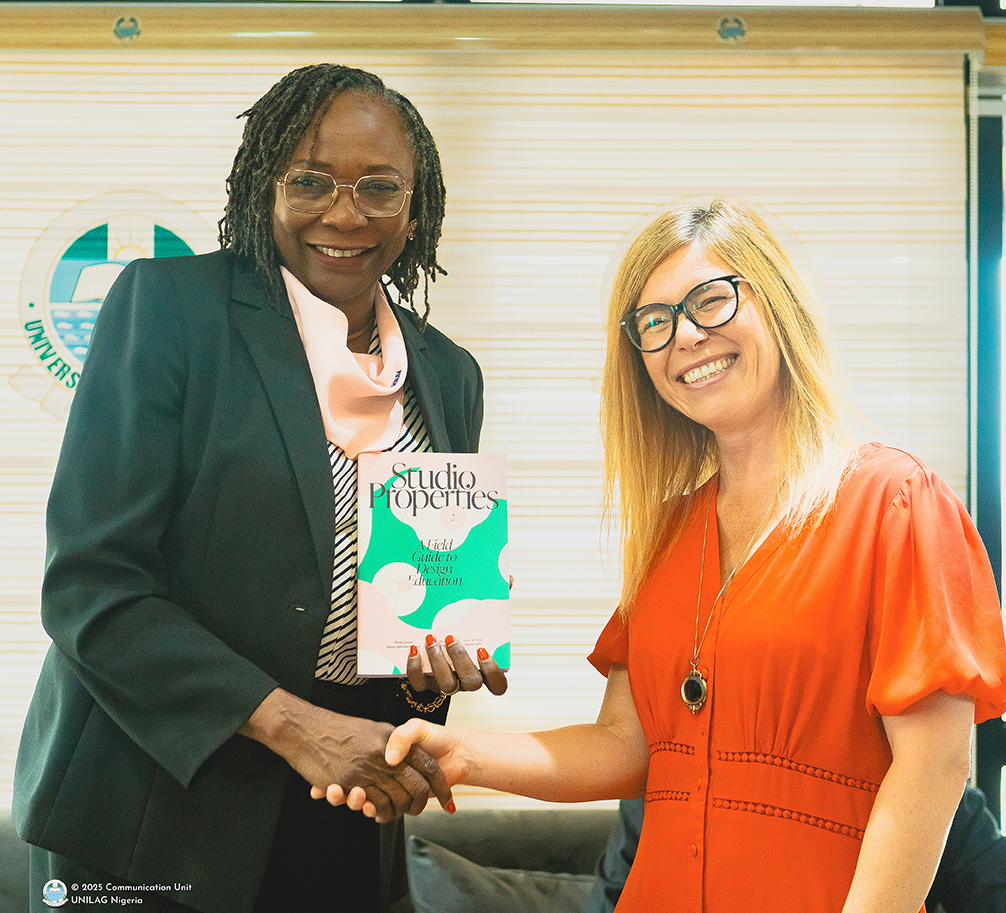This month, I had the honour of delivering a keynote address at the 4th International Colloquium of the Distance Learning Institute at the University of Lagos. To my surprise and delight, I was also invited to a welcome meeting with the university’s first female Vice Chancellor, Professor Folasade Ogunsola, FAS, OON.

During our conversation, and later in her opening address, Professor Ogunsola shared a perspective that resonated deeply with me. She spoke about how distance and online learning in Nigeria often fails to support the human and social dimensions of education. She lamented the absence of atmosphere, social interaction, and a sense of place, identity, and belonging in current digital learning platforms.
Naturally, I presented her with a copy of the Studio Properties book, suggesting that she might find inspiration in the principles of educational design studios.
The properties outlined in the book are not limited to in-person learning environments. They are equally relevant to hybrid, blended, and distance learning because they reflect the foundational principles of studio learning. For me, the real power of the book lies in how it connects individual Studio Properties and helps the reader form their own ideas about more holistic, humane learning experiences.
In our brief exchange, I identified at least seven studio properties highlighted in [Bold]:
Simply being together in a collective [Collective learning], comprising students from different year groups and specialisations, increases students’ awareness of the surrounding activities, creates chance encounters [Serendipity] and prepares them to act on opportunities to design together. A shared [Place] and shared materials and [Artefacts] offer opportunities for interactions and [Dialogue].
Online learning environments don’t necessarily struggle with embedding those individual properties. The challenge lies in weaving them together to create a cohesive, meaningful experience, a true [Place of identity] and [Belonging] that goes beyond the functional interface.
